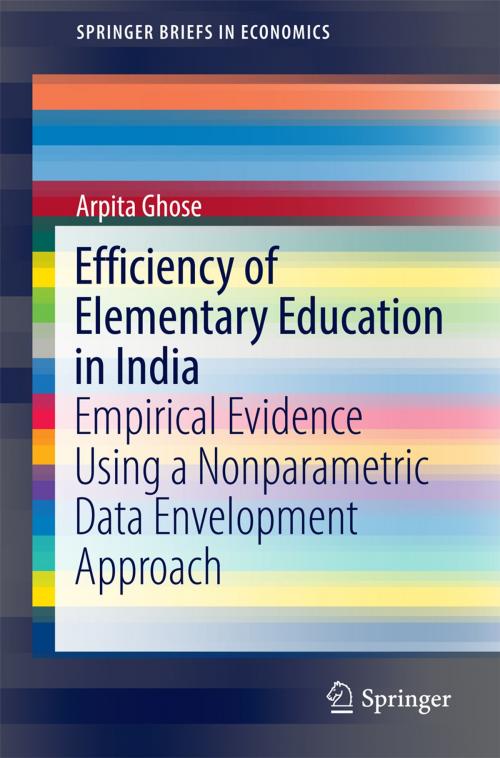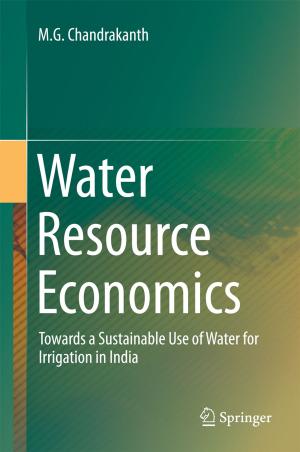Efficiency of Elementary Education in India
Empirical Evidence Using a Nonparametric Data Envelopment Approach
Business & Finance, Economics, Econometrics, Nonfiction, Reference & Language, Education & Teaching, Educational Theory, Educational Reform| Author: | Arpita Ghose | ISBN: | 9788132236610 |
| Publisher: | Springer India | Publication: | October 6, 2016 |
| Imprint: | Springer | Language: | English |
| Author: | Arpita Ghose |
| ISBN: | 9788132236610 |
| Publisher: | Springer India |
| Publication: | October 6, 2016 |
| Imprint: | Springer |
| Language: | English |
This book assesses how efficient primary and upper primary education is across different states of India considering both output oriented and input oriented measures of technical efficiency. It identifies the most important factors that could produce differential efficiency among the states, including the effects of central grants, school-specific infrastructures, social indicators and policy variables, as well as state-specific factors like per-capita net-state-domestic-product from the service sector, inequality in distribution of income (Gini coefficient), the percentage of people living below the poverty line and the density of population. The study covers the period 2005-06 to 2010-11 and all the states and union territories of India, which are categorized into two separate groups, namely: (i) General Category States (GCS); and (ii) Special Category States (SCS) and Union Territories (UT). It uses non-parametric Data Envelopment Analysis (DEA) and obtains the Technology Closeness Ratio (TCR), measuring whether the maximum output producible from an input bundle by a school within a given group is as high as what could be produced if the school could choose to join the other group. The major departure of this book is its approach to estimating technical efficiency (TE), which does not use a single frontier encompassing all the states and UT, as is done in the available literature. Rather, this method assumes that GCS, SCS and UT are not homogeneous and operate under different fiscal and economic conditions.
This book assesses how efficient primary and upper primary education is across different states of India considering both output oriented and input oriented measures of technical efficiency. It identifies the most important factors that could produce differential efficiency among the states, including the effects of central grants, school-specific infrastructures, social indicators and policy variables, as well as state-specific factors like per-capita net-state-domestic-product from the service sector, inequality in distribution of income (Gini coefficient), the percentage of people living below the poverty line and the density of population. The study covers the period 2005-06 to 2010-11 and all the states and union territories of India, which are categorized into two separate groups, namely: (i) General Category States (GCS); and (ii) Special Category States (SCS) and Union Territories (UT). It uses non-parametric Data Envelopment Analysis (DEA) and obtains the Technology Closeness Ratio (TCR), measuring whether the maximum output producible from an input bundle by a school within a given group is as high as what could be produced if the school could choose to join the other group. The major departure of this book is its approach to estimating technical efficiency (TE), which does not use a single frontier encompassing all the states and UT, as is done in the available literature. Rather, this method assumes that GCS, SCS and UT are not homogeneous and operate under different fiscal and economic conditions.















